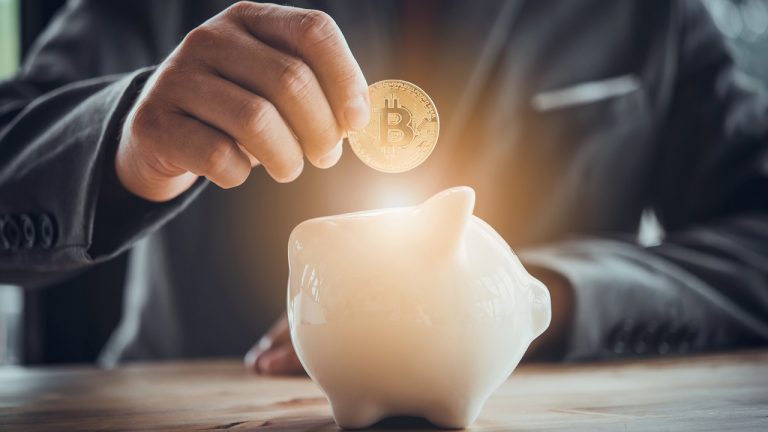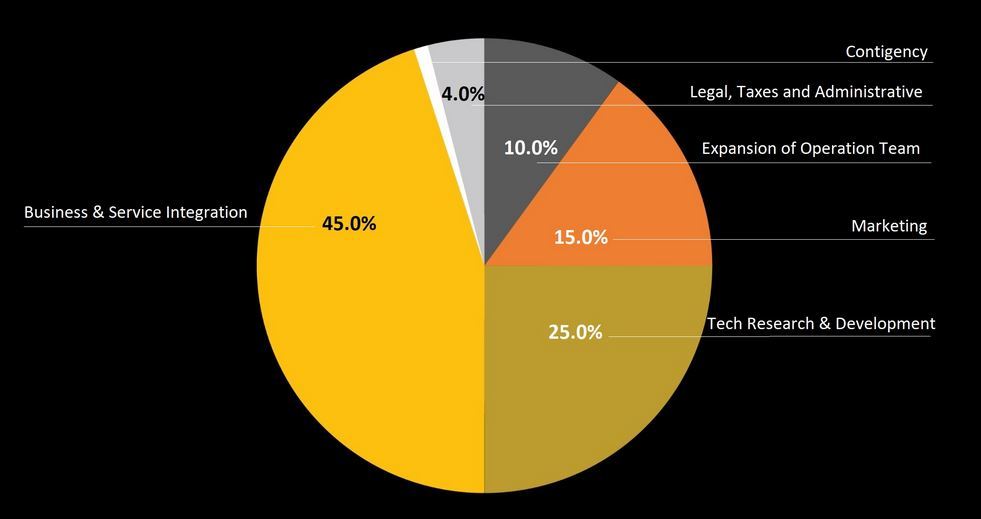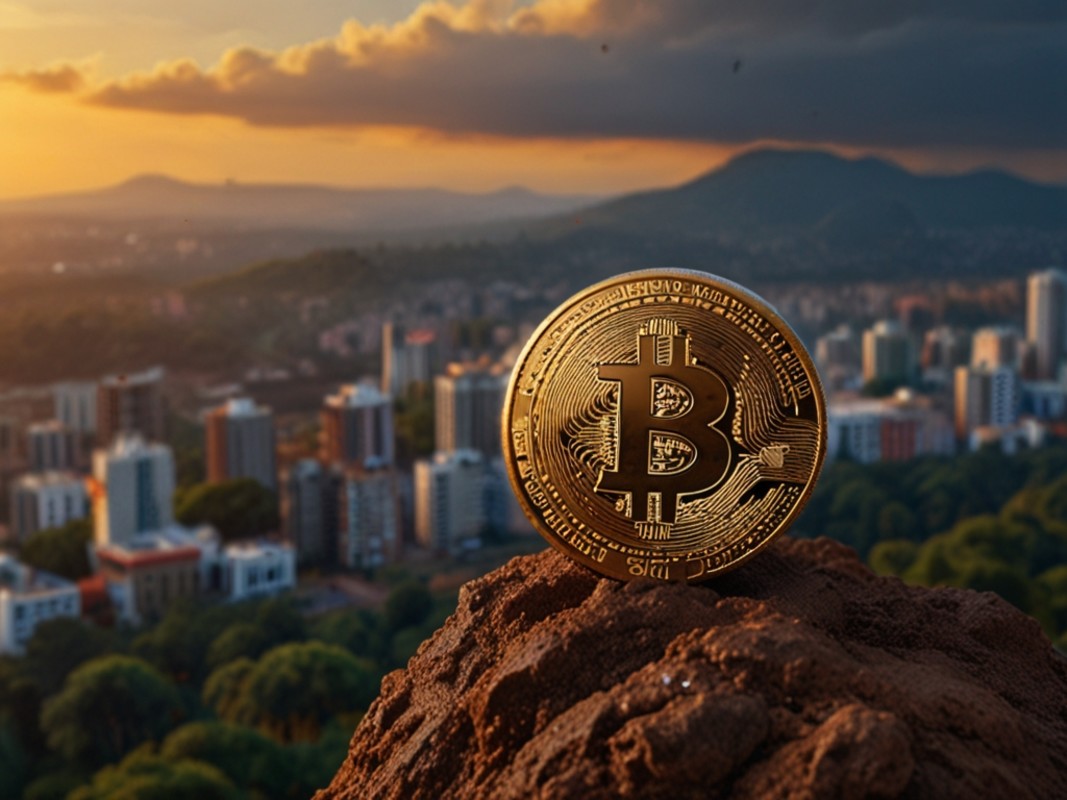2023-5-11 15:00 |
This is an opinion editorial by Dan Weintraub, an author and high school teacher who first became interested in Bitcoin while teaching economics.
Recently, I’ve been thinking a good deal about Balaji Srinivasan’s $1 million dollar bet that bitcoin would reach $1 million in June (which he recently conceded), his apparent hyperbole with regard to imminent U.S. dollar hyperinflation and his musings about digital lockdowns. It all sounds a bit far-fetched to me.
On this score, he reminds me of Peter Schiff, a man who for decades has told us the sky is falling and that the world will end as fiat currencies all collapse; a man who claims intellectual superiority over the “fools” at the Federal Reserve (meanwhile and generally speaking, the global economy hums along and collapse appears, at least for the time being, to be the stuff of dystopian clickbait on YouTube).
I, for one, try to eschew conspiracy thinking because it feels neurologically indulgent to me. In simpler words, those who peddle in conspiracy theories do so because it gets them, and their followers, off. “Meltdown masturbation,” if you will. (By way of example, the wild-eyed belief that the U.S. government used the COVID-19 lockdowns as a trial run for further repression reeks of paranoia and a desperate quest for making some kind of dopamine-producing meaning out of a rather bleak moment in time. Crazy town, really; but good fodder for the production of adrenaline-inducing catastrophe porn.)
Yes, I am skeptical of prognostications of impending doom. But that said, there is an underbelly to such thinking that reveals a far more troubling dynamic; a dynamic that, driven by the exponential age in which it exists, is fast on the rise. And this dynamic will be far more destructive, far more catastrophic, than the supposed collapse of fiat or that the coming of a global banking crisis could ever be.
We are entering an age in which all trust is dying, and with the end of trust comes the end of… everything. Sure, I may think that Srinivasan and all of the other gloom-and-doom, the-end-is-nigh purveyors have, in some manner and to some degree, lost their grips, but there is something quite revealing not simply in the power of their musings, but in the reality that it reveals, in the attention and excitement it attracts.
You see, no one trusts anything or anyone anymore. And that utterly terrifies me.
The Death Of TrustThe list of institutions that we increasingly mistrust is, well, endless. And the depth and breadth of such distrust grows daily.
I’m not so sure that I need to provide the reader with an in-depth analysis of our collective loss of trust in everything. And so, in the interest of brevity, here is the abridged version:
Track the numbers and you will see that trust in government is at all-time lows and continues to crash. Whether it’s because our leaders actually are dishonest, self-serving, greedy, power-hungry, incipient lobbyist-ghouls, or whether it’s because that’s how they are portrayed in the media, government officials and institutions are roundly and profoundly distrusted.
An ever-diminishing minority trusts law enforcement, perhaps because such a minority either has relatives who serve on the police force or because their own power is buoyed by the machinations of the policing and legal systems. For the most part, Americans seem to view police officers as former high-school misfits who magically discovered expressions of sweet revenge in being able to bully the rest of us. Add to this the widespread corruption that permeates every nook and cranny of law enforcement and of our justice system (cough, the Supreme Court, cough), and it’s no wonder that “f*** the police” is a popular cultural refrain.
Interestingly, fewer and fewer people trust the so-called mainstream media; so few, in fact, that there actually isn’t a mainstream media anymore. Pretty much all media has become an expression of ideological vitriol, a theatrical dance aimed at capturing a larger market share of the neurologically dispossessed; a cynical beast birthed and nurtured to line the coffers of the men and women who captain these galactic founts of misinformation.
Few trust our public school systems anymore. What was once viewed as a virtuous institution, an endeavor of the highest good, public education has been summarily devoured by every possible ideologically-propelled interest group; the vomit that has followed has painted a picture of public education as rife with lazy teachers teaching knucklehead kids.
I could go on. From corrupt corporations and their corrupt CEOs to the self-serving, self-righteous and self-aggrandizing leaders of organized labor; from duplicitous, woke and censorship-informed activists touting the need for correct pronoun adherence to the reactionary and manipulative religious leaders looking to return the nation to the wonderful patriarchies of the 1950s, trust is vanishing into the very ether in which these individuals stoke their fires and solidify their self-concentered narratives.
But wait! It gets better. For now, superimposed over this already bleak landscape, say hello to ChatGPT, to deep fake technology, to central bank digital currencies; bid an open-hearted welcome to trust’s final frontier, a world in which discerning truth from falsehood becomes virtually impossible.
What a dumpster of a world. What is to be done?
Enter, Bitcoin.
Bitcoin And Verification Of TruthI have written several papers (I like to call them books because it makes me feel smart, and I have even published them on Amazon) about Bitcoin, extolling the virtues of this quite-extraordinary technology. In all of those pieces I have asked, nay begged, that we have some imagination when considering our Bitcoin future. I will go even further here: Bitcoin is our only hope in an increasingly trustless world, for within the Bitcoin protocol lies the answer to all of the conundrums posed by a trustless world:
The ultimate answer is verification of truth. Hear me out.
To begin with, when I suggest that we have some imagination, I am actually not asking for all that much. The boxes in which we live, the lenses through which we view reality, have evolved time and time again. It wasn’t all that long ago that we believed that the Earth was the center of the universe, that humans would never fly, that computers were the providence of NASA. Things have changed, and they have changed quickly. The public internet was born around 30 years ago, give or take. Now look at us. It is almost too hard to imagine what the next 10 years will bring.
So, why Bitcoin? Why is this relatively-straightforward technology (ingenious and elegant, complex and nuanced… but straightforward nonetheless) the answer to the impending doom we all face if we are unable to prime and restart our national and international trust engine?
It’s simple. Because Bitcoin is the truth. On a most basic level, the Bitcoin protocol — and the tens of thousands of nodes that run the software — verifies each and every transaction that takes place on chain. No one is in control. No one’s word needs to be taken as fact. The truth is manifest and auditable on the blockchain itself. Countless, entirely-objective nodes make falsification of the record an impossibility. Bitcoin is thus an inviolable, immutable, incontrovertible truth.
Have some imagination!
What if, just what if, the Bitcoin network, in time, becomes the base layer of this thing we call the internet? What if all data that passes through this network is verified and scoured for falsehood by the soon-to-be billions of verifying nodes; nodes that become native to the devices that we employ for all of our communication and social/virtual interactions? And what if more and more people, in an effort to believe, abandon the cynical and exploitative and fetid digital world that has evolved to date, and instead join a network of unassailable truth?
You see, the promise of Bitcoin is not that it serves as sound money in an unsound monetary universe; the promise is not that it births a banking system that is devoid of scammy, fraudulent middlemen; no, the promise is far, far more profound.
The promise of Bitcoin is that it slowly devours the very beast that gave birth to its need.
Trust is a human imperative, a social imperative. Without trust, chaos ensues. In a world in which belief in things must always be questioned, mental health suffers, governments fail and anarchy rises; lawlessness and violence become the norm rather than the exception. In a trustless world, isolation and hoarding are seen as virtues rather than maladaptations. In a trustless world, everything falls apart, institutions crumble, warlords and demagogues emerge on an ever-rising tide of uncertainty and fear.
We are moving toward such a future, toward such a world. Bitcoin is our only hope. In Bitcoin there exists the possibility that trust can slowly be reestablished, not based upon the words and deeds of men, but instead on a universal digital protocol that sifts through the mire and always, without prejudice, arrives at the truth.
We must have the imagination to believe in this possibility. This is what makes Bitcoin a beacon of hope, a ray of light permeating the haze of a creeping fog of surrender.
I HODL bitcoin, thus. I preach the gospel of Bitcoin because I dare to hope, for my great grandkids, in a world community governed by truth, verified by benevolent objectivity; a world in which trust forms the very core of our existence.
So to Srinivasan and Schiff and all of the other catastrophians I say: Perhaps you are right. But the truth remains: The only way out of this existential death spiral is through a rebirth of trust, and only Bitcoin, realized to its highest and most majestic potential, can provide this.
Just imagine.
This is a guest post by Dan Weintraub. Opinions expressed are entirely their own and do not necessarily reflect those of BTC Inc or Bitcoin Magazine.
origin »Bitcoin price in Telegram @btc_price_every_hour
Bitcoin (BTC) на Currencies.ru
|
|



























